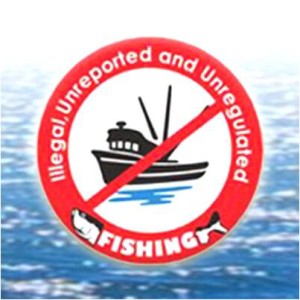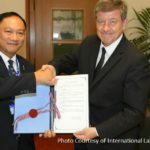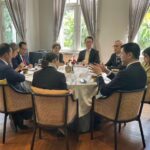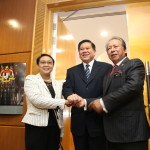
Thailand has already achieved compliance with 80 percent of the measures recommended by the European Union (EU) to eliminate illegal, unregulated and unreported (IUU) fishing, according to the director-general of the Department of Fisheries, who added that the country will sustain its efforts until reaching 100 percent.
This month, EU inspectors are reviewing the measures Thailand has taken to stop and prevent IUU fishing, and Director General Waraporn Prompoj of the Department of Fisheries (DOF) expressed confidence that inspectors would view Thailand’s efforts favorably. The EU has threatened to ban seafood imports from Thailand unless the Kingdom complies with its standards.
The seafood industry is important to Thailand’s economy, reeling in over $7 billion in earnings each year and employing hundreds of thousands of people. The sustainability of the industry, however, is under threat because of IUU fishing and overexpansion.
Thai fishing fleets are hauling in catch from the Gulf of Thailand that is 30 percent more than the country’s seafood processing plants can handle, Waraporn said, indicating that fishers are wasting resources that are already diminishing. From the Andaman Sea the figure is 10 percent above capacity.
Waraporn said that Thailand has amended laws and regulations to meet requirements and standards demanded by the EU and other importing countries in developed markets. These new regulations are designed to improve and ensure traceability of catches and spell out clear and severe penalties for violators. An executive decree making all the changes official will soon be issued, she said, although most are already in effect.
Larger fishing trawlers are now required to install Vessel Monitoring Systems (VMS) so that marine regulators can observe their movements, and vessels are now required to maintain log books documenting what they have caught and where. As part of measures to clean up the entire supply chain, similar logs must also be maintained by onshore buyers and sellers and seafood processing plants.
Thailand’s larger seafood processing companies have already been taking steps to rid their supply chains of raw materials from IUU fishing or that are the result of other abuses in the fishing industry.
In March, Thai Union Frozen Products (TUF), the largest seafood company in the Kingdom, announced it had severed relations with a supplier accused of IUU fishing and labor abuses, after a news agency investigation brought those abuses to light. Thai Union said the abuses were “totally unacceptable. Consumers can rest assured that our current products are not tainted with the alleged trade supplier.”
Likewise, Charoen Pokphand, a huge producer of shrimp for consumers and fishmeal for animal feed, said recently that it was eliminating any suppliers that could not pass inspections on IUU fishing and labor issues.
—————————–
Thailand Focus September 21, 2015




